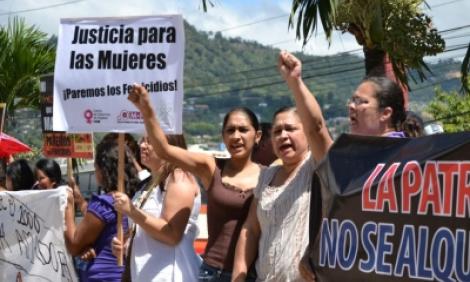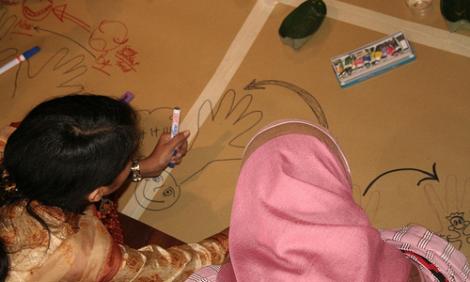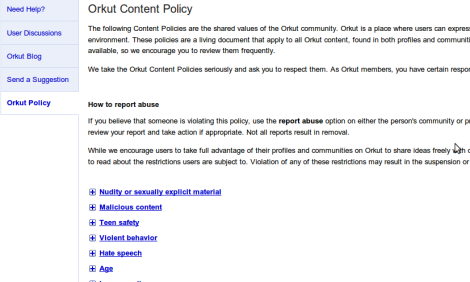
In depth
Trafficking in Women: female objectification
A conservative estimate is that 42 million people are prostituted worldwide, of which 90% are exploited by pimps, and every year 2 million people are added to this number. Latin America has 10% of trafficking in persons for sexual activities - nearly half of the victims are children and youth under 18 years. Human trafficking is considered the third most profitable form of crime in the world,…

Feminist talk
Blaming the victim
It was a bit like ping-pong - reporters, activists, and representatives from civil society organisations in a hot debate on privacy in Facebook. Some pointed out how Facebook (FB) from its inception is designed to encourage giving up your innermost secrets – or at least your relationship status. That privacy configurations change frequently on FB and it's hard to keep up or understand the…

In depth
Who benefits from the silence? Freedom of expression and women human rights defenders in Costa Rica, Honduras and Guatemala
In this article, Daysi Flores, a JASS Mesoamérica representative and GenderIT.org contributor, looks at a number of new cybercrime laws in Costa Rica, Honduras and Guatemala that pose a threat to online security, the right to privacy, and freedom of expression and association for the countries’ citizens in general, but for women human rights defenders in particular.

In depth
Opportunities for Ecuadorian women to connect their rights online
In the interview with Flavia Fascendini of GenderIT.org, Valeria Betancourt, manager of APC’s Communications and Information Policy Programme, argues that the incorporation of knowledge transfer through technology, connectivity for the information and knowledge society, and finally, inclusion and the guarantee of human rights within the broad strategies of Ecuador’s National Plan for Good Living…

In depth
Brazil, Magaly Pazello: “We have no specific debate on women's internet rights”
Magaly Pazello, activist and specialist researcher in gender and information and communication technologies, recently joined the team that developed the Brazil report for the UN's Universal Periodic Review. In discussion with Flavia Fascendini, the editor of GenderIT.org, Pazello confirmed that there is still a great deal to do with regards to the connection between women's rights and a broad…
Publication
Submission to the Universal Periodic Review of Brazil
This joint submission has been prepared by the APC Women’s Networking Support Programme in consultation with Instituto Nupef and is endorsed by Sexuality Policy Watch. The submission focuses on human rights and the internet in Brazil. It highlights areas where Brazil is doing well, specific areas of concern, and makes five recommendations for follow-up and implementation. The submission focuses…
Publication
APC's submission to the Universal Periodic Review of Ecuador
APC’s submission for Ecuador to the UPR process, with support from CIESPAL and Radialistas Apasionadas y Apasionados, focuses on issues of access to the internet and highlights the critical importance of the internet for human rights, as well as social and economic development. Although the first UPR of Ecuador did not include reference to internet-related human rights issues, the events of 2011…
In depth
Mapping the intersection of technology and gender-based violence
On 25 November 2011, Take Back The Tech! campaign launched an interactive map that allows internet users to share their stories, local news and personal experiences of gender-based violence they faced online or through the use of mobile phone technologies. As of 7 December, the map has recorded 103 stories from across the globe, with the majority of stories coming from Africa, Latin America and…

In depth
Who's gonna track me?
Flavia Fascendini looks at the report of the Special Rapporteur on the situation of human rights defenders -- which, for the first time in history, focuses on the situation of women's human rights defenders. Drawing on the report's findings, she talks to South-East Asian women's activists about the unique security risks they face online.

Feminist talk
Brazil: An ethnographic approach – mapping sexuality on Orkut
Flavia Fascendini explores two communities on the Orkut social networking site on sexuality: one is a forum for anti-lesbian prejudice, and the second is a community aimed at legitimising romantic relationships between adults and adolescents. Both groups were studied as the part of the Brazilian EROTICS research project that focused on mapping the dynamic and complex policy shifts on internet…




